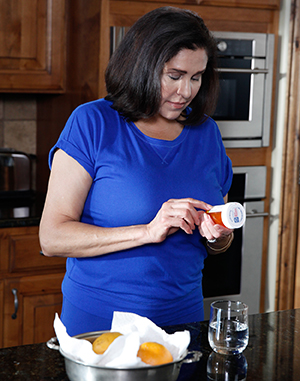Managing Post-Op Pain at Home: Medicines
Managing Post-Op Pain at Home: Medicines
Pain after an operation (post-op pain) is common and expected. These guidelines can help you stay as comfortable as possible.
Taking pain medicines
Take medicines on time. Do not take more than prescribed.
Take only the medicines that your healthcare provider tells you to take.
Take pain medicines with some food to avoid an upset stomach.
Don’t drink alcohol while using pain medicines.
Do not drive while taking opioid pain medicines.
Types of pain medicines
Non-opioid
Over-the-counter (such as acetaminophen and ibuprofen) or prescription
All relieve mild to moderate pain and some reduce swelling
Possible side effects include stomach upset and bleeding, high doses may cause kidney or liver problems
Check with your healthcare provider before taking over-the-counter pain medicines in addition to your prescribed pain medicine
Opioid
Always a prescription
Relieve moderate to severe pain
Possible side effects include stomach upset, nausea, and itching
May cause constipation (to help prevent this, eat high-fiber foods and drink plenty of water)
Your healthcare provider may recommend a stool softener
When to call your healthcare provider
Call your healthcare provider or seek immediate attention if you notice any of these symptoms:
Nausea, vomiting, diarrhea, lasting constipation, or stomach cramps
Breathing problems or a fast heart rate
Feeling very tired, sluggish, or dizzy
Skin rash
Updated:
February 05, 2018
Sources:
Management of acute perioperative pain. UpToDate
Reviewed By:
Image reviewed by StayWell art team.,Sudheendra, Deepak, MD,Taylor, Wanda L, RN, Ph.D.
